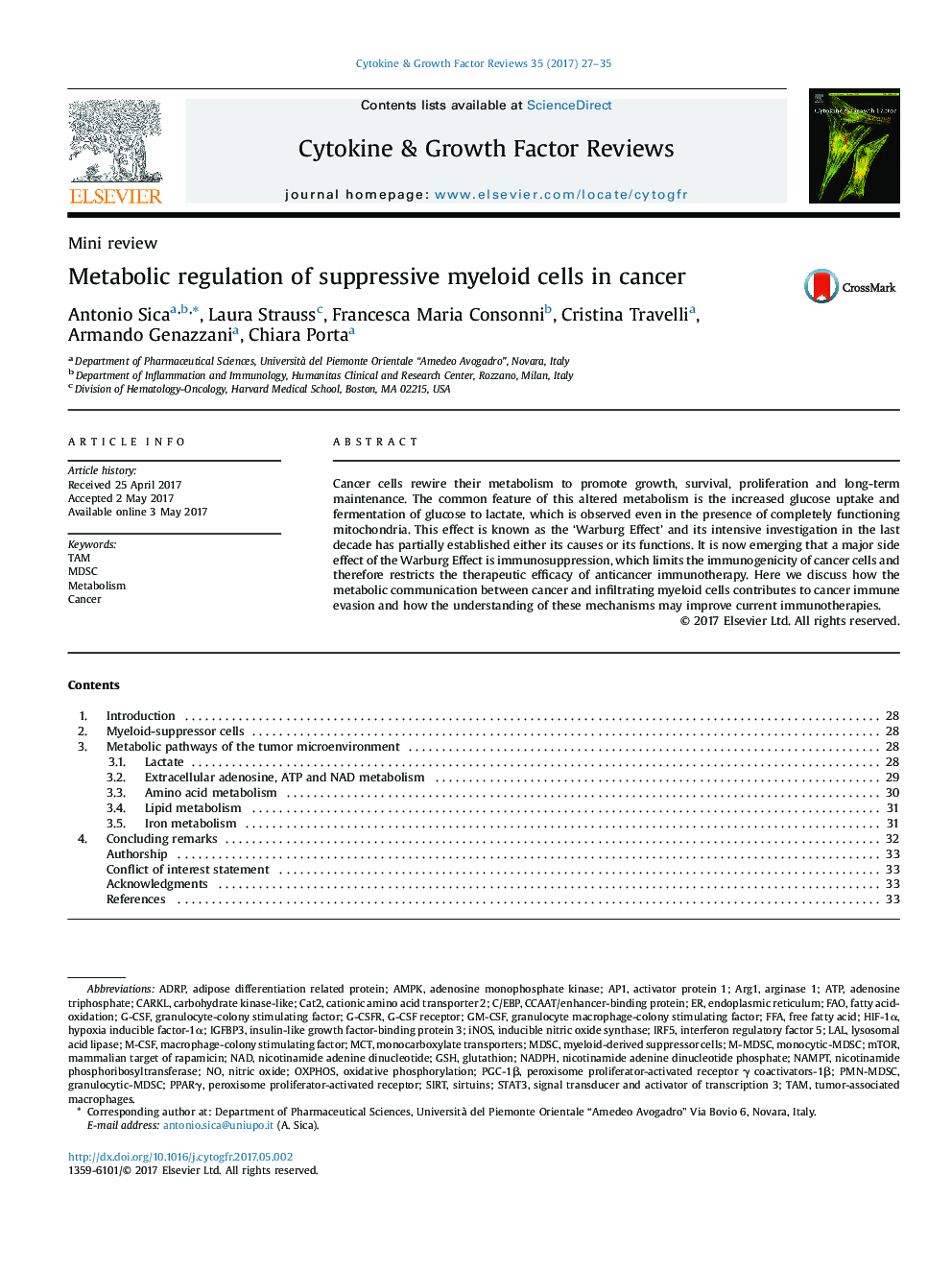| کد مقاله | کد نشریه | سال انتشار | مقاله انگلیسی | نسخه تمام متن |
|---|---|---|---|---|
| 5531228 | 1549489 | 2017 | 9 صفحه PDF | دانلود رایگان |
- Metabolic communication between cancer and infiltrating myeloid cells contributes to cancer immune evasion.
- Tumor and immune cells share similar nutrients and metabolic pathways, that support their proliferation and survival.
- This metabolic competition within the tumor microenvironment may fine-tune the activation and anti-tumor immune responses.
- Metabolic drugs acting at the metabolic crossroad between cancer and immune cells might own a bivalent anticancer activity.
Cancer cells rewire their metabolism to promote growth, survival, proliferation and long-term maintenance. The common feature of this altered metabolism is the increased glucose uptake and fermentation of glucose to lactate, which is observed even in the presence of completely functioning mitochondria. This effect is known as the 'Warburg Effect' and its intensive investigation in the last decade has partially established either its causes or its functions. It is now emerging that a major side effect of the Warburg Effect is immunosuppression, which limits the immunogenicity of cancer cells and therefore restricts the therapeutic efficacy of anticancer immunotherapy. Here we discuss how the metabolic communication between cancer and infiltrating myeloid cells contributes to cancer immune evasion and how the understanding of these mechanisms may improve current immunotherapies.
154
Journal: Cytokine & Growth Factor Reviews - Volume 35, June 2017, Pages 27-35
